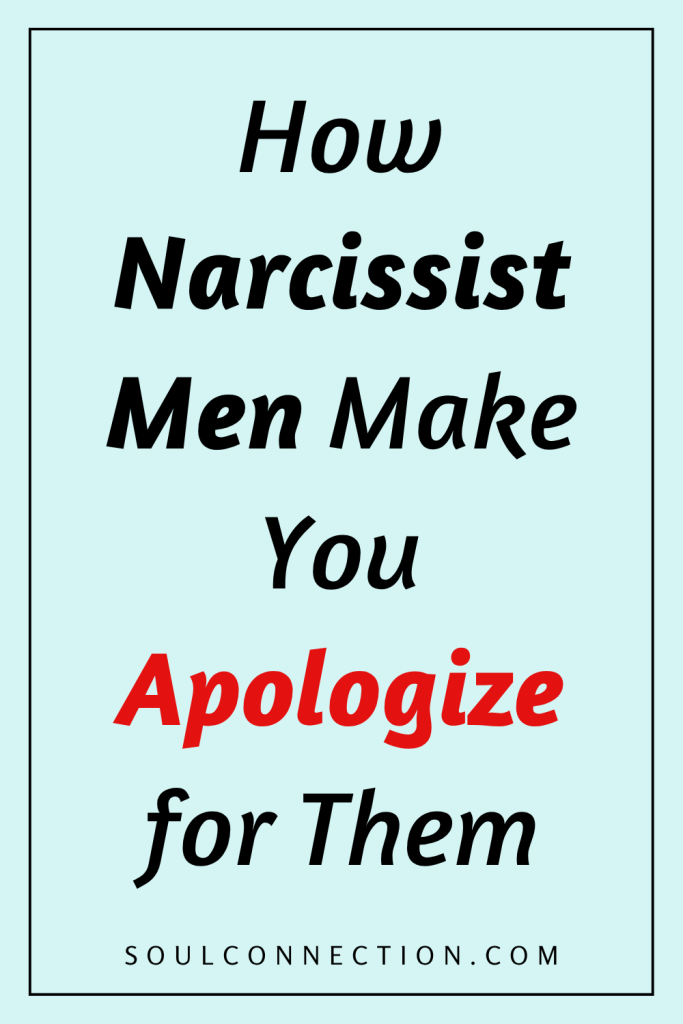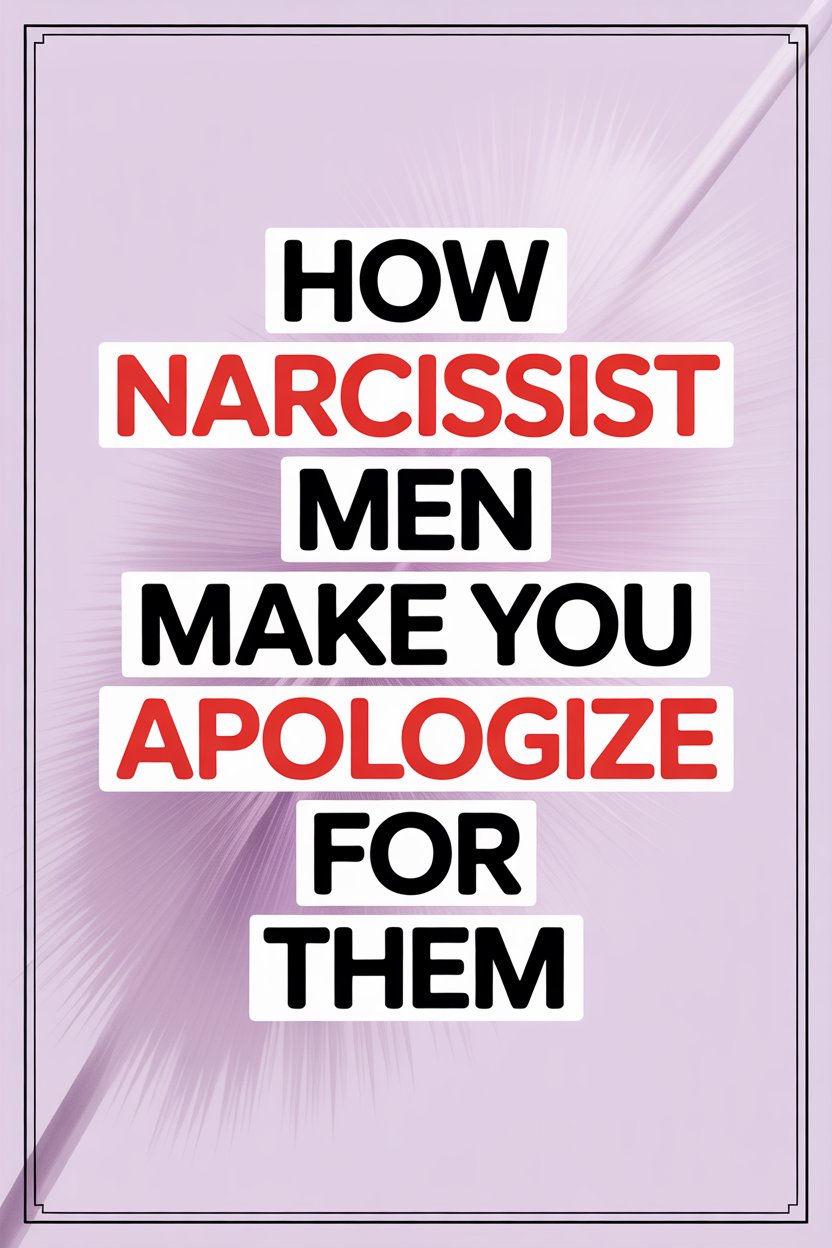Ever found yourself saying sorry for someone else’s bad behavior, while they’re busy scrolling through their phone or offering the emotional equivalent of elevator music?
If your answer came with a heavy sigh and a vivid flashback, you might be dealing with a narcissist—or at the very least, someone who’s read their playbook cover to cover.
Narcissist men have a knack for flipping the script so dramatically, even the most seasoned playwrights would take notes. They won’t just have you apologizing for things they did; they’ll have you believing it was your idea all along.
The Art of Emotional Pickpocketing
Narcissist men are magicians. Not the fun, pull-a-rabbit-out-of-a-hat kind. More like the kind who make your dignity disappear and leave you apologizing for not clapping at their tricks.
How does it start? Picture a simple scenario: He’s rude to your friend at dinner. You cringe. Instead of apologizing, he acts offended that you’re “choosing sides.”
Suddenly, you’re smoothing things over, texting your friend, “He didn’t mean it, he’s just tired.” Congratulations—your apology count just hit one, and the night is still young.
This trick isn’t limited to public gaffes. It pops up in private, too: He snaps at your family, you find yourself defending his “tough week at work.”
You’re not just apologizing; you’re providing a full-service excuse buffet.
Gaslighting: The House Special
Narcissist men serve up gaslighting like it’s happy hour all the time. That time he embarrassed you at your own birthday party? If you bring it up, suddenly it never happened, or it’s somehow your fault for being “too sensitive.”
This isn’t just frustrating—it’s an Olympic-level mind game. Before long, you start questioning your own memory. Did he really say that? Was it really that bad?
Cue the apology: “Sorry if I overreacted.” (Notice the “if”—the classic sandwich for any emotionally exhausted partner.)
The Masterclass in Victimhood
Narcissists are champions at playing the victim. Hurt their feelings by bringing up something they did? Prepare for a dramatic monologue about how hard their life is, how misunderstood they are, and how everyone keeps ganging up on them.
Miraculously, your initial concern—say, his rude comment at brunch—gets buried under an avalanche of his grievances.
Next thing you know, you’re apologizing for making him feel bad, for bringing it up, and for not seeing things from his perspective.
You’re essentially running public relations for his ego. Crisis managed, but at the cost of your boundaries.
The Blame-Shifting Olympics
Arguing with a narcissist is like running on a hamster wheel: exhausting, circular, and you get nowhere. The second you flag problematic behavior, he sprints past the point and starts blaming you.
Did he forget your anniversary? Suddenly, it’s your fault for not reminding him. Did he embarrass you in front of friends? Well, if you hadn’t brought up that “touchy subject,” he wouldn’t have reacted.
You end up apologizing for things you didn’t do—sometimes for things that didn’t even happen.
The Guilt Trip Getaway
Guilt trips are their favorite vacation spot, and they always bring you along for the ride.
He might sigh heavily, look wounded, and say things like, “I guess I just can’t do anything right.” You leap to reassure—and suddenly, you’re apologizing for feeling hurt, for expressing yourself, for breathing wrong.
His pain becomes the main event. Your pain? Silently relegated to the cheap seats.
Keeping Up Appearances
Narcissist men care about their image the way toddlers care about snacks. A lot. If he blows up at a party or picks a fight in public, he expects you to do damage control.
You find yourself explaining, smoothing, apologizing to friends or family—anything to keep the peace or avoid awkward questions later.
The unspoken rule: Protect his reputation at all costs. Bonus points if you can make it look like the incident was just a “misunderstanding.” Who knew you’d be running a one-woman PR firm?
The Subtle Art of Boundary Erosion
Boundaries are kryptonite to narcissists. Every time you set one, there’s a gentle nudge. Then a little guilt. Then a not-so-subtle sigh. Eventually, you’re apologizing for saying “no” at all.
Each apology chips away at your self-respect, until it’s easier to say yes than to risk another emotional tug-of-war. Resentment simmers, and his comfort remains untouched.
Why It Feels Like Your Fault
After enough cycles of this, you start to wonder if you’re just difficult. Maybe you are too emotional. Maybe he’s right and you’re the problem.
Spoiler: You’re not.
Narcissists are masters at creating confusion. By getting you to shoulder the blame, they maintain control (and an unblemished self-image).
The more you apologize, the less you question their behavior—because, let’s be honest, you’re too busy trying to keep the peace.
How to Step Off the Apology Treadmill
Ready for good news? This cycle isn’t set in stone. There are ways to reclaim your voice and dignity, even if your partner is an Olympic-level blame-shifter.
- Listen to your gut. If you feel like you’re apologizing too often for things outside your control, you probably are.
- Start keeping a “reality log.” Write down incidents as they happen, especially those moments where you’re tempted to apologize for his behavior. Later, read them back. Patterns love to reveal themselves in plain black and white.
- Use clear, assertive language. “I’m not comfortable apologizing for something I didn’t do.” No need for drama—just facts, delivered with confidence.
- Set boundaries (and brace for pushback). Remember, it’s okay to say, “This isn’t mine to fix.”
- Seek outside support. Talk to friends, a therapist, or anyone who’ll remind you what healthy relationships look like.
You Don’t Have to Be His Apology Translator
Love shouldn’t mean being someone’s clean-up crew.
You deserve respect, honesty, and accountability—not a lifetime spent smoothing things over for someone who refuses to take responsibility.
If you find yourself constantly apologizing for a narcissist’s bad behavior, it’s not a reflection of your failings. It’s a sign that he’s handing you emotional baggage that isn’t yours to carry.
Put it down. Walk lighter. You might just find your own voice is louder than you remember—and far more interesting than his excuses.


